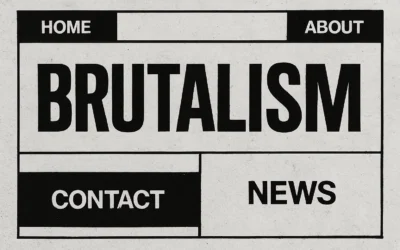
If I’ve said it once, I’ve said it a thousand times: freelancing and consulting work are like sunlight; there’s enough for all of us to get a tan.
That said, in the coin flip of life, some days don’t feel like you’re operating in a world of abundance. This freelancing game can be brutal. Sometimes things look bleak, and you wonder if you’re going to make it.
The minute you start radiating struggle or desperation, a predatory (at worst) or clueless (at best) potential client will appear, sensing your weakness and enticing you with a fat – or so they say – check, if only you can accommodate their abusiveness, idiocy, or micro-managing.
You begin to wonder how critical is it that you close this job? Ask yourself if you’re willing to be married to a client who is throwing up red flags before you’ve even done any business together? Can you tolerate their behavior once there are stakes? Sometimes you’ll decide that things just aren’t bad enough to willingly subject yourself to frustration.
The other side of the coin flip of life is that sometimes things are going like gangbusters. Sometimes the freelancing game opens up and gives you the goodies you’ve been working so hard to acquire.
The minute you sign a few lucrative clients and start turning out good work, you become attractive to good and bad clients alike. People stop objecting to your rates quite so strenuously. Your proposals are accepted with progressively less pushback.
You wonder how much work you can take on before quality of service begins to decline? You begin to wonder if you can hire fast enough to meet demand? Can you manage any more projects without things starting to slide? Sometimes you’ll decide that your best move is to preserve your schedule slack, your quality of service, or your peace of mind.
In these cases – whether motivated by the good or the bad of the freelancing business – you may decide that you really need to turn down the work that has been so thoughtfully offered to you. And it can be damned uncomfortable knowing how to turn down freelance work like a professional, without offending anyone, without appearing to be arrogant, and without burning any bridges that may come back to haunt your freelancing business later (I don’t have to explain to you why it’s a bad idea to treat people poorly or with arrogance, even if they’re a bozo, do I?).
Luckily, in my 12 years of operating a freelancing business, I’ve been on both sides of the coin. And I’m going to tell you how to turn down freelance work and still respect yourself afterward.
1) Listen to them. Even if you’re 99.9% certain you’re not going to accept their project, listen to them. A brief conversation isn’t going to cost you much, and there’s the possibility – however remote – that their project will turn out to be one that is worth making an exception for.
2) Use this e-mail template. I’ve developed this e-mail template over time, and use it in my own freelancing business. When I first wondered how to turn down freelance work, my attempts to do so were, at best, ham-fisted; at worst, outright arrogant. As the years have gone by, I’ve nipped and tucked this message into a pretty effective work-rejecting tool, one that doesn’t burn any bridges:
Hi {name}
First, thanks for considering {company name} for your project. I know it’s hard to know who to turn to with such an important project, and I appreciate your show of trust.Second, after our consultation and looking over the specifics of your situation with my team, it looks like we’re probably not a good fit for your project. The {schedule/market/technology/etc} required for this project is outside what we feel we can provide to make your project come to life. I’d be remiss in signing you up without being able to provide the best possible solution.
Instead, I recommend you talk to one of these local firms:
{insert the name of/links to 2 or 3 local competitors}All that said, don’t hesitate to keep in touch. Your project has a lot of merit, and sounds like it will be real winner with the right team behind it. I’m looking forward to hearing about your eventual launch!
Kind Regards,
{your e-mail signature}
3) Be gracious when they come back to you later. This doesn’t always happen, but my experience in the freelancing business tells me it’s not unusual, either. When you’re busy wondering how to turn down freelance work, you probably aren’t wondering what to do if they come back. There’s a reason they chose you in the first place, and if your work is truly unique, it’s possible that the client won’t be satisfied by anyone you refer them to instead.
4) Hold your boundaries. Whether the client pushes back immediately, or comes back to you 6 months later, don’t feel obligated to budge. Sure, feel free to re-evaluate if they come back to you 6 months later, but if the original issues that made you wonder how to turn down freelance work are still valid, hold your boundaries. Sometimes – just sometimes – a client will have come to a more realistic view of their project, a new manager has taken over, or other project circumstances have changed in the interim, and you’ll find that you feel good about giving it a go. But sometimes not.
That’s it! The issue of how to turn down freelance work is not a terribly complicated one, but it does require clear thought, abundant tact, and strong boundaries, three things that I’m sorry to say are frequently in short supply in many small freelancing shops.
Don’t be afraid to behave like the professional you aspire to be. Being more professional and holding stronger boundaries will never make your business worse. And when in doubt, send the graceful rejection e-mail I supplied above!





Great article Chris. It’s always hard for me to say no, boundaries is definitely a key!
Hi Chris! This is really awesome. I hope I can get my business up to the point where I’m turning people away 🙂 Right now it’s hand to mouth.
Holding your boundaries is so important. (And extends to so many things!) Some really good advice here for navigating these scenarios.